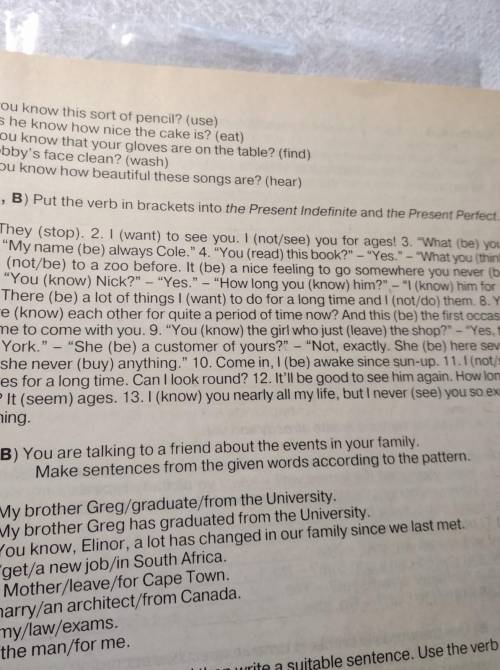
общие
1. Were we sitting too far to hear the lecturer?
2. Is there little traffic in this town?
3. Does it take a lot of time to do this work?
альтернаивные
1. Were we sitting too far to hear the lecturer or the singer?
2. Is there little or much traffic in this town?
3. Does it take a lot of or little time to do this work?
специальные
1. How far were we sitting to hear the lecturer?
2. Where is there little traffic?
3. How much time does it take to do this work?
разделительные
1. We were sitting too far to hear the lecturer, weren't we?
2. There is little traffic in this town, isn't there?
3. It takes a lot of time to do this work, doesn't it?
к подлежащему
1. Who was sitting too far to hear the lecturer?
2. What traffic is there in this town?
3. What takes a lot of time?
Some и any могут сочетаться с любыми существительными в единственном или множественном числе. Обычно some используется в утвердительных предложениях, но иногда появляется и в вопросительных, если это или предложение:
Some couples stay together forever.
Some believe Elvis is still alive.
Would you like some coffee?
Any в свою очередь чаще появляется в вопросительных и отрицательных конструкциях вместо some, а также может использоваться в утвердительных предложениях в качестве наречия степени:
Have you got any sugar in the cupboard?
The government didn’t take any steps to prevent the recession.
Does she feel any better today?
Much и manyЭти слова можно перевести как «много, многие». При этом much используется с неисчисляемыми существительными, а many – с исчисляемыми. Обычно much и many встречаются в вопросительных и отрицательных предложениях:
There isn’t much water in the kettle.
Have you got many kids in your class?
В утвердительных конструкциях эти слова, особенно much, появляются обычно в сопровождении so, too, very, how, as:
Too many students are absent because of illness.
I couldn’t remember how much time I had spent at the pub the previous night.
В прочих случаях для обозначения большого количества используются выражения a lot of, lots of и другие. Кстати, разницы между a lot of и lots of фактически нет. Обе фразы используются с исчисляемыми и неисчисляемыми существительными:
There is a lot of wine in the cellar.
She adds lots of sugar to her tea.
We need a lot of boxes to pack all these clothes.
Lots of my relatives are quite conservative.
кто что знает